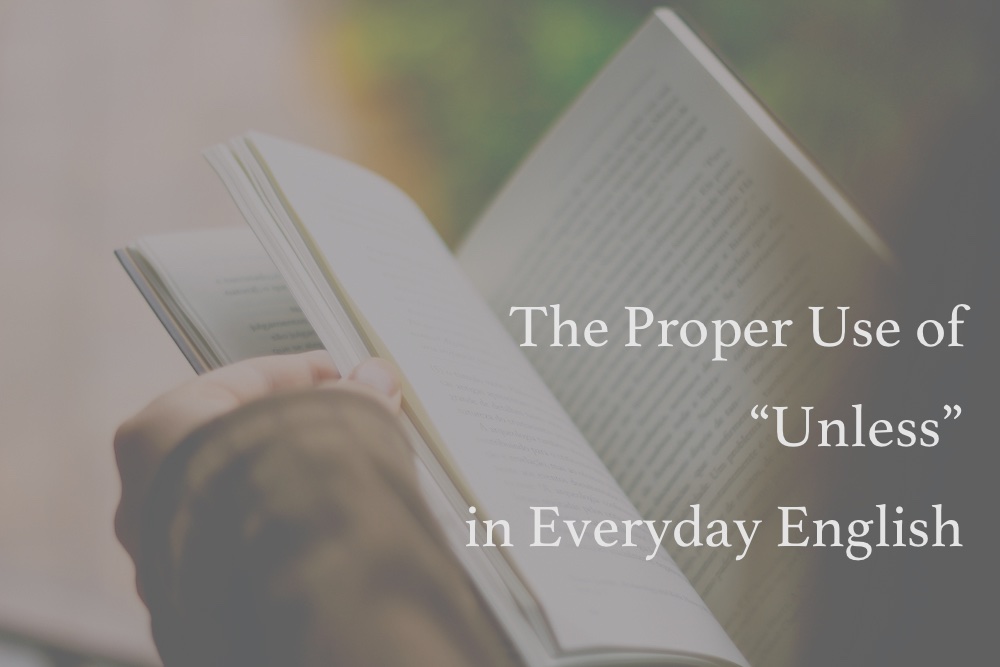The Proper Use of “Unless” in Everyday English

The expression “unless” is very common in English conversations. However, it will inevitably affect the meaning of what you intend to say if you misuse it. People will be confused by what you mean when it is utilized in the wrong context.
This time, let us study how to use “unless” in our daily conversations correctly. So, first, what does “unless” mean? This word expresses a negative condition. It means that if situation B (the state) does not happen first, then situation A is not possible.
For example, “You can’t join the club if you don’t pay the membership fee.” So, the negative condition here is “if you don’t pay the membership fee.” You can’t join the club if you don’t follow this particular condition or requirement. You can also say, “You can’t join the club unless you pay the membership fee. So, what you do is remove “if you don’t” and replace it with “unless.” Either way, they mean the same thing.
Another example to consider is:
“You can’t visit Australia if you don’t get a visa.”
Using the word “unless,” you can say, “You can’t visit Australia unless you get a visa.”
Other additional examples are:
“You can’t pass the TOEFL if you don’t study.” Alternatively, “You can’t pass the TOEFL unless you study.”
“Alvin can’t go out unless he does a few things at home.” So, what can you think of as possible unfavorable conditions here? Let us try these:
“Alvin can’t go out unless he cleans up his room.” Alternatively, “Alvin can’t go out unless he feeds the dogs.” Alternatively, “…unless he finishes his homework first.”
Try doing this on your own and supply the negative conditions to complete the statement:
“Today, I can’t do (this) unless I do (that/ condition).”
I will give you a little clue here. For office workers, you can say, “I can’t submit the final report unless I finish encoding the minutes of the meeting.” Remember, situation B will not happen if you do not meet the condition or requirement (situation A).
So, each day, if you practice writing sentences like that, you will feel more confident about using the word “unless.” Eventually, you would be able to use it in your daily English conversations appropriately and confidently.
